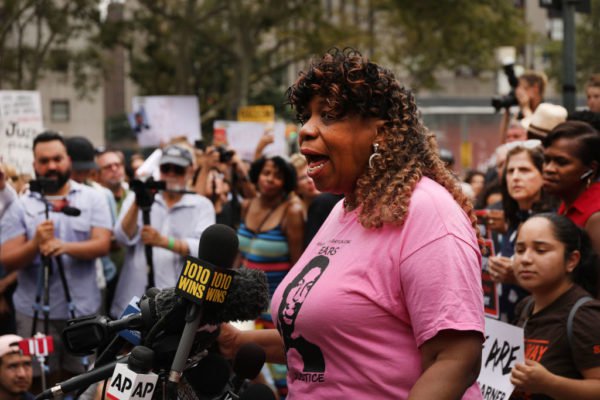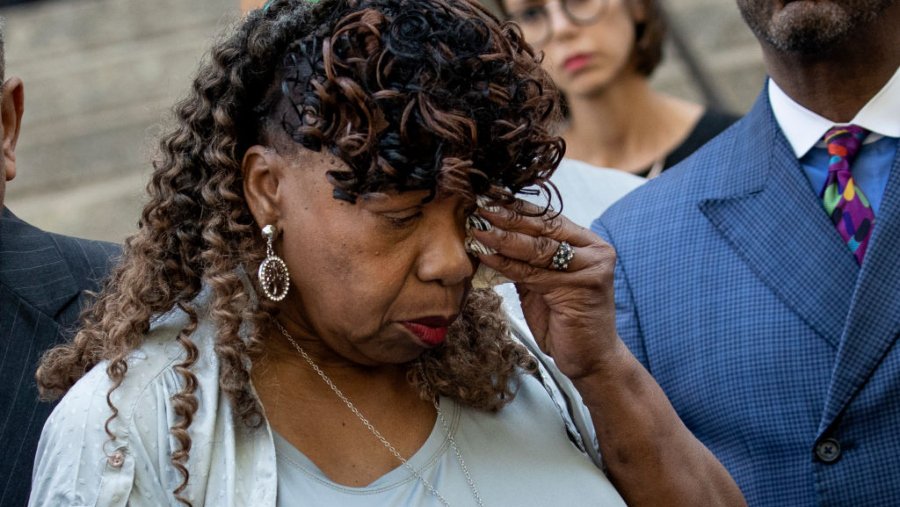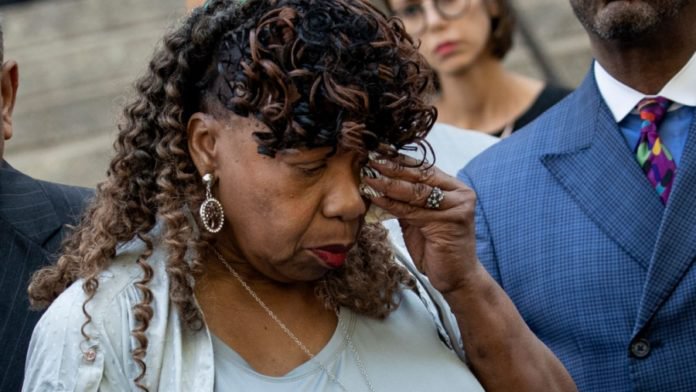[ad_1]
Gwen Carr vividly remembers the morning she had her last conversation with her son, Eric Garner.
“I got up that morning and I spoke to Eric. I spoke to him for about 10 minutes and afterwards we said our goodbyes.”
“He said ‘I love you, Mom.’
I said ‘I love you too, Eric’ never knowing that would be our last and final conversation.”
Later that day, on July 17, 2014, Garner would gasp his last words on a video that would circulate around the world:
“I can’t breathe…I can’t breathe…I can’t breathe…I can’t breathe…I can’t breathe…I can’t breathe…I can’t breathe…I can’t breathe…I can’t breathe…I can’t breathe…I can’t breathe…”
READ MORE: Detroit woman shot 11 times by wife after asking for divorce
Thursday morning Carr testified before a House Judiciary Committee in an oversight hearing on policing practices on Capitol Hill, explaining how those words would haunt her to until this day.
“My entire life was uprooted on that July day. I felt helpless in a dark place. Scattered in millions of pieces,” said Carr, reading from prepared remarks. “Most people can’t even comprehend how difficult it is to suddenly lose a child and to fight for five years and just get an ounce of accountability.”
This is the first hearing before Congress about police misconduct cases, and it was organized by Carr and Rev. Al Sharpton’s National Action Network (NAN).
It’s taken five years for a judge to hand down any ruling against former New York City police officer, Daniel Pantaleo, who was fired in August over using an illegal chokehold on Garner. Unfortunately, not everyone in Garner’s family would live to see the “ounce of accountability” their matriarch referred to.
Erica Garner, the eldest daughter of Eric Garner and Carr’s granddaughter, died December 30, 2017 from cardiac arrest. Carr believes that one death precipitated the other.
“She was only 27-years old, but when my son was murdered, she fought the good fight. She fought until she became ill. I say she died of a broken heart,” Carr said during her testimony Thursday morning.
This summer, just days after the fifth anniversary of Eric Garner’s death, Carr’s husband, Ben Carr, also passed away.
“He was my partner in every sense of the word. He fought the long fight with me even though he wasn’t in front of the cameras,” Carr testified, the sadness in her voice lingering on every word.
“These are the wounds that are both seen and unseen from the police brutality, the loss of loved ones, and no recourse…no accountability.”

Longtime civil rights organizer, Rev. Al Sharpton, is typically misjudged as a “race-baiter” by detractors, but he was there to testify before the committee and respond to those who say that police brutality campaigns have bad intentions.
“This is not about anti-police,” Sharpton testified. “This is about upholding the law. And no one should want bad cops punished more than good cops whose names are smeared because people get to choke people on tape hearing 11 times, ‘I can’t breathe.’”
READ MORE: NYPD lieutenant text: Eric Garner’s death was ‘not a big deal’
“Even when we stand up when police are killed, we are yet to see the police union stand up one time when one of the officers killed someone in the community unjustifiably. I’m not saying every policeman is wrong, but those that step outside the law must be punished.“
Sharpton wrapped his testimony with a clear shot at President Donald Trump, who in the past has called Sharpton a “racist.”
“This is not what America should be about,” said Sharpton. “The President and others can excuse it. I think it’s on the Congress to act. President says I hate cops. No, I just dislike the President.”
Both Carr and Sharpton are calling for support of the Excessive Use of Force Prevention Act, which was initially introduced by New York Rep. Hakeem Jeffries in 2015, and explicitly forbids the use of chokeholds by law enforcement.
Watch the full testimony here.
[ad_2]
Source link


